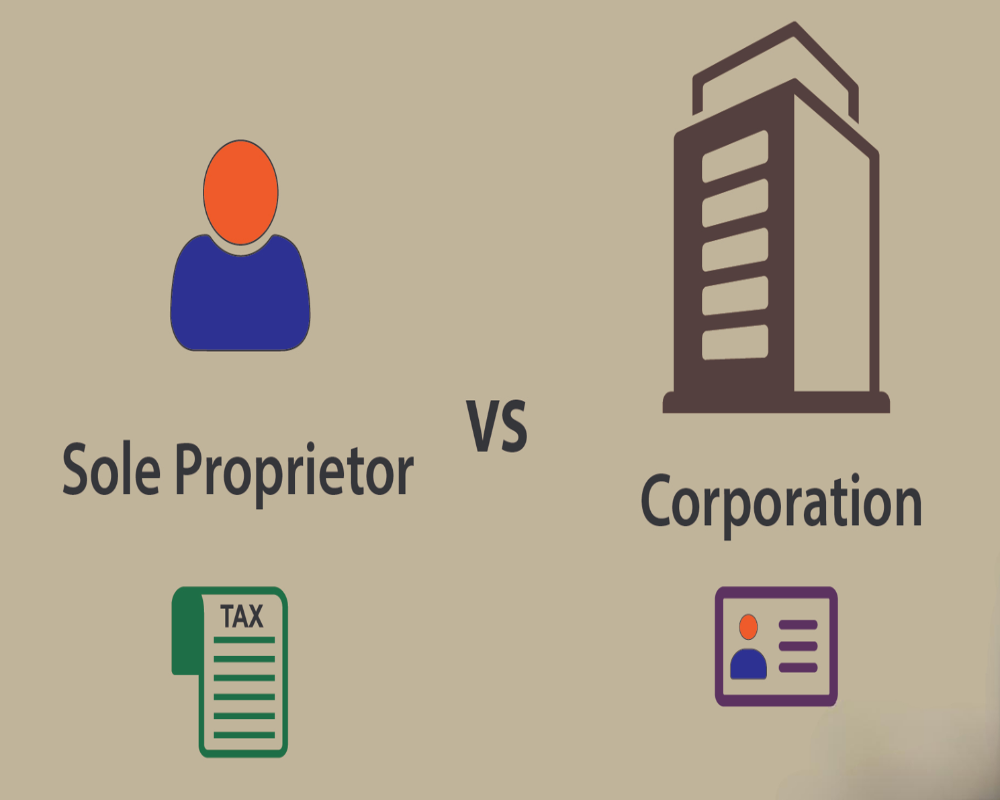1. Legal Status and Formation
Sole Proprietorship
- An unincorporated business owned and operated by one individual
- Not a separate legal entity from the owner
- Requires minimal setup, often without formal registration
- Operates under the owner’s name or a trade name
Corporation
- A separate legal entity incorporated under corporate law
- Legally distinct from its owners (shareholders)
- Requires formal registration and incorporation with the government
- Has perpetual existence regardless of changes in ownership
2. Ownership and Control
Sole Proprietorship
- Owned and controlled by a single person
- The owner makes all decisions independently
- Ownership is not transferable without dissolving the business
Corporation
- Owned by shareholders, who may be individuals or other entities
- Managed by a board of directors and officers (CEO, CFO, etc.)
- Ownership is divided into shares, which can be sold or transferred
- Shareholders have indirect control through voting rights
3. Liability
Sole Proprietorship
- The owner has unlimited personal liability
- Personal assets can be used to satisfy business debts or legal claims
- There is no legal protection between the business and the individual
Corporation
- Offers limited liability protection to its shareholders
- Owners are generally liable only up to their investment in shares
- Personal assets are protected from business obligations and lawsuits
4. Taxation
Sole Proprietorship
- Profits are taxed as personal income of the owner
- The business does not pay taxes separately
- Owner reports income on an individual tax return
Corporation
- A corporation is taxed separately on its profits (corporate tax)
- Shareholders may also pay tax on dividends, leading to potential double taxation
- Some jurisdictions allow pass-through taxation for small corporations (e.g., S corporations in the U.S.)
5. Compliance and Recordkeeping
Sole Proprietorship
- Fewer regulatory requirements
- No mandatory audits, board meetings, or formal records unless specified by turnover
- Simple and low-cost to maintain
Corporation
- Subject to strict legal and regulatory compliance
- Must maintain statutory registers, conduct board meetings, file annual returns and financial statements
Requires the services of legal and accounting professionals


0 Comments